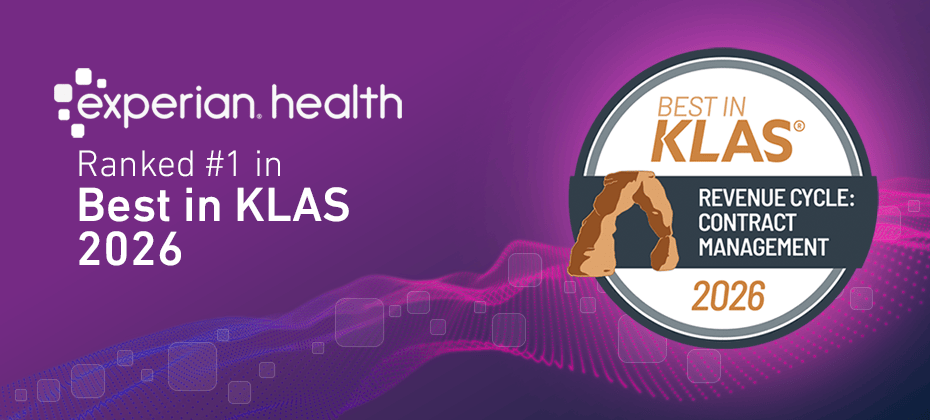
Inflation is giving the cost of healthcare a run for its money. The Consumer Price Index rose by 8.3% year-over-year in August 2022, compared to a rise of just 2.9% in the Health Care Price Index. However, slower price increases do not necessarily mean healthcare will get an easier ride than other businesses. Healthcare contracts are agreed in advance with government and commercial payers, so any effects of inflation could simply be delayed. How should providers factor such economic unpredictability into their revenue cycle management strategies?
Healthcare is usually more resistant to wider economic shocks than other service sectors, so rising inflation doesn’t necessarily mean there’s an urgent need to change course. Providers are always working to maintain a healthy revenue cycle and will continue to do so now. That said, the lingering financial effects of the pandemic, staffing shortages and increasing operational costs mean that provider cash flow is sensitive to any added pressure. While there’s currently no sign that patient collections have been significantly affected by inflation yet, patients may assume that health costs will increase too, along with everything else. This might lead them to delay elective care, which could affect providers’ bottom lines.
As non-COVID patient traffic slowly returns and state and federal aid ends, rising inflation presents an additional hurdle to providers’ financial health. Providers will need to tighten their patient collections process and safeguard their bottom line. Download the white paper to learn how inflation is impacting healthcare and get strategies to optimize collections and avoid revenue loss.
Providers that want to bolster their revenue cycle against the potential impact of inflation should focus on increasing workforce efficiency to manage costs and mitigate the risk of deferred care, to maintain a steady inward cash flow. They’ll also want to be prepared for any potential shift in patient payment reliability that could occur if inflation persists. Automated solutions and self-service digital tools can help to solve these issues.
Minimize workforce inefficiency with automation and self-service solutions
Questions to consider:
-
How can digital technology and automation improve efficiency and ease pressure on staff?
-
Where can patient self-service solutions help reduce the need for staff input?
Inflation is likely to hit providers hardest in relation to payroll expenses. Staffing shortages lead to increased costs as providers raise salaries to attract and retain new staff, pay overtime costs, and hire more temporary workers. Reduced purchasing power will only exacerbate these challenges.
Automation and digital tools can help address staffing shortages and keep a lid on payroll costs by increasing efficiency in existing workflows. For example, digital technology can allow patients to take care of many administrative tasks themselves, thus reducing the demand for staff input. Online self-scheduling and registration allow patients to book appointments and fill out pre-service paperwork without taking up valuable staff time. These tools leverage data and automation to pre-fill patient information, which reduces the risk of costly errors and saves time for patients and staff.
Further along in the patient journey, automated collections can eliminate much of the manual work that puts pressure on understaffed teams, while increasing the likelihood and speed of payment. Collections Optimization Manager helps increase workforce productivity to make better use of staff time and avoid unnecessary revenue loss. Advanced analytics are used to prioritize accounts by payment probability, which will be increasingly useful should ongoing inflation increase the risk of patient bills going unpaid. Consumer data helps identify the most appropriate communications method for each segment, so the right message can be sent at the right time to boost the chances of collecting a greater percentage of money owed. Automation also helps reduce staff costs to collect, while bumping up the amount of money that comes in the door. As hospital operations become more expensive on the whole, maximizing efficiency in collections is increasingly important.
Maximize revenue by removing friction for patients worried about the cost of care
Questions to consider:
-
How can providers help patients better understand their bills?
-
How can digital technology make it easier for patients to access and pay for care?
The second step is to make sure that dollars keep coming in the door. Managing household bills can be challenging for patients, and there’s no suggestion that the rise in inflation during 2021 has added any new pressure to patients’ ability to pay for healthcare. Experian Health’s clients also continue to see very low levels of delinquency. However, despite pay raises, many consumers are worried that price inflation will overtake any increase in household income, especially as energy and food prices go up. They may decide to cancel or postpone elective care until they’re sure of their financial situation or move their medical bills to the bottom of their priority list.
In reality, costs for patients haven’t increased, because of the delayed effect of inflation in healthcare. That’s why it would make more sense for patients to seek elective care sooner rather than later. Given reports of pricing concerns, providers should consider ways to reassure patients about their financial obligations and make sure they don’t miss out on the care they need.
Here are some ways that providers can support their patients:
- Providers can help patients get a better understanding of their medical bills and payment options, by incorporating solutions that offer greater price transparency. Upfront patient estimates delivered directly to their mobile device, with links to appropriate payment plans and payment methods, can help them plan with confidence. This will help to reassure patients that prices have not increased drastically due to inflation, so they are dissuaded from deferring care.
- Finding missing or forgotten insurance coverage is another strategy to give patients certainty around how their bills will be covered. A tool such as Coverage Discovery can run repeated and automated checks for previously unknown government and commercial coverage, using multiple data sources.
- Self-service patient access and patient payment tools can help to reduce friction during scheduling, registration and billing, so patients see fewer reasons to postpone care.
Liz Serie, Senior Director of Product Management at Experian Health, says, “Automation and patient self-service features can help address the risk of patients choosing to put off visiting their doctor or getting a procedure they need. Many patient access and patient payment activities that would normally require staff attention can be easily pivoted to an innovative patient-facing experience. This will reduce friction for patients and help providers manage staffing shortages and cost pressures.”
“Automation and patient self-service features can help address the risk of patients choosing to put off visiting their doctor or getting a procedure they need. Many patient access and patient payment activities that would normally require staff attention can be easily pivoted to an innovative patient-facing experience. This will reduce friction for patients and help providers manage staffing shortages and cost pressures.”
– Liz Serie, Senior Director of Product Management
Find out more about how Experian Health’s digital tools and solutions can help healthcare organizations create a financial safety net and protect their revenue cycle against the possible impact of inflation.


